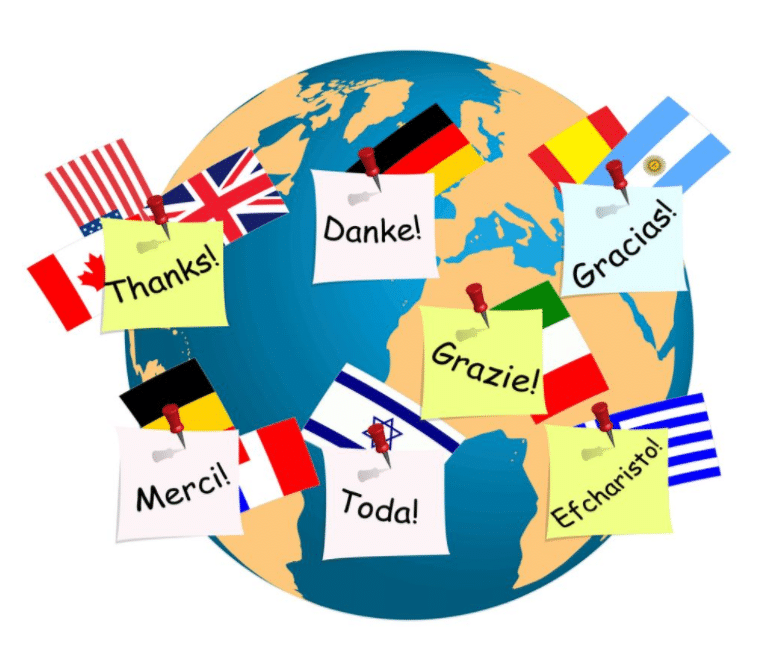In today’s digital age, the use of modern programming languages has seen significant progress, defining the technology landscape and shaping the way we design and build software. This detailed analysis will explore the progress in the use of modern languages, focusing on the specialized expertise they offer, the customized strategies they enable, and how they contribute to saving time and resources in the development of technology solutions. Throughout this exploration, relevant keywords that play a crucial role in this evolutionary journey will be highlighted.
In the dynamic fabric of the digital age, modern programming languages have emerged as fundamental architects of the technology revolution, delineating the ever-changing landscape of software development. This comprehensive analysis dives into the remarkable progress of these languages, exploring the specialized expertise they provide, the customized strategies they deploy, and their essential contribution to saving time and resources in the creation of technology solutions. Throughout this journey, we will illuminate crucial keywords that drive this evolving technological journey. Get ready to explore the fascinating world of programming languages in the digital age!
Specialized Modern Language Expertise
Specialized expertise in the use of modern languages has become a core element for developers and companies looking to take full advantage of the capabilities of technology. Code readability, ease of learning and flexibility are key factors that define specialized expertise in modern languages.
Modern languages such as Python, JavaScript, and Ruby have gained popularity due to their clear and expressive syntax. Specialized expertise in these languages allows developers to focus on the logic of the problem rather than dealing with unnecessary implementation details. This simplicity translates into a smoother learning curve, encouraging active participation by new programmers and efficiency for experienced ones.
Custom Strategies in Modern Language Development
Custom strategies are essential in modern language development, as each project has unique requirements and specific challenges. The versatility of modern languages allows developers to tailor strategies that align perfectly with development goals and project characteristics.
Examples of customized strategies include choosing specific frameworks, implementing particular design patterns, and adopting agile development methodologies. For example, in modern web development, the custom strategy might involve selecting a framework such as React for dynamic user interfaces or Flask for lightweight web servers.
Saving Time and Resources with Modern Languages
Saving time and resources is a key advantage of using modern languages in software development. Efficiency in development is achieved through several features, such as concise syntax, abundance of libraries and frameworks, and ease of code maintenance.
Languages such as Go and Rust have gained popularity for their performance and resource efficiency, which is essential in high-performance applications and distributed systems. In addition, automation of repetitive tasks through modern tools and workflows streamlines development and reduces manual workload.
Relevant Keywords in Modern Languages Progress.
Modern Languages:
Python: Clear syntax, versatility and broad ecosystem of libraries.
JavaScript: Key language for web development and client-side applications.
Go: Recognized for its performance and efficiency in concurrent systems.
Rust: Chosen for its security and performance in low-level systems.
Frameworks and Libraries:
React, Angular, Vue.js: Modern frameworks for user interface development.
Django, Flask: Framework for web development in Python.
Express, Nest.js: Frameworks for web applications and servers in JavaScript/Node.js.
Gin, Echo: Lightweight frameworks in Go for web development.
Automation and DevOps:
Docker: For the creation, distribution and execution of containerized applications.
CI/CD (Continuous Integration/Continuous Deployment): Strategies for fast and reliable software delivery.
Progress in Developer Experience
Progress in the developer experience is a vital component of progress in the use of modern languages. Development tools, integrated development environments (IDEs) and collaborative development practices are key areas that have seen significant improvements.
IDEs such as Visual Studio Code and PyCharm offer advanced features, syntax highlighting, intelligent suggestions and debugging tools that enhance developer productivity. In addition, the adoption of agile methodologies and the implementation of code review practices contribute to a more efficient and collaborative development environment.
Impact of Parallelization and Concurrency
Progress in modern languages is also reflected in the efficient management of parallelization and concurrency. Languages such as Go are designed with concurrency in mind, allowing simultaneous execution of multiple tasks in an efficient manner. This capability is essential for systems that handle large numbers of concurrent requests, such as web servers and cloud services.
Evolution of Modern Language Security
The evolution of security in modern languages is a critical aspect given the increasing complexity of cyber threats. Languages such as Rust have been noted for their focus on memory security, helping to prevent common errors that could lead to security vulnerabilities. In addition, the emphasis on security in web application development has led to the adoption of practices such as the use of HTTPS and the implementation of strong authentication and authorization.
Use of Modern Languages in Artificial Intelligence and Machine Learning
Progress in the use of modern languages is evident in their widespread adoption in the field of artificial intelligence (AI) and machine learning (ML). Python has become the language of choice for these domains, thanks to libraries such as TensorFlow and PyTorch that simplify the development of complex models. Python’s versatility also extends to data manipulation and analysis, facilitating the preparation of data sets for training.
Challenges and Future Progress in Modern Languages
Despite advances, challenges remain in the progress of modern languages, such as managing complexity in large-scale projects and the need to address emerging problems such as software maintainability. The future of progress in modern languages may be marked by further integration of technologies, adoption of more advanced programming paradigms, and continued collaboration and openness in the development community.
The Container and Orchestration Revolution
A crucial aspect of progress in the use of modern languages is the mass adoption of containers and container orchestration. Tools like Docker have transformed the way we deploy and run applications by encapsulating them with all their dependencies in isolated environments. This not only simplifies deployment, but also ensures consistency between development, test and production environments.
Container orchestration, led by technologies such as Kubernetes, has taken container management to the next level. It enables the automation of deployment, scale and management of containerized applications, providing a robust and scalable infrastructure for modern development.
Agile Development and DevOps: Beyond Efficiency
Progress in the use of modern languages is intrinsically linked to the agile approach and DevOps practices. Agile development, with its emphasis on incremental delivery and constant feedback, has become a cornerstone for successful projects. Development teams that adopt agile methodologies experience shorter development cycles, better adaptation to change, and higher customer satisfaction.
Continuous integration (CI) and continuous delivery (CD) are fundamental DevOps practices that accelerate time from coding to deployment. Tools such as Jenkins, GitLab CI and GitHub Actions have simplified workflow automation, improving efficiency and reducing errors in the development process.
Evolving Security: A Constant Imperative
Progress in the use of modern languages has brought with it an evolution in security practices. The increasing sophistication of cyber threats has driven the adoption of proactive approaches to software security. Languages such as Rust, with its emphasis on memory security, have addressed common vulnerabilities, such as buffer overflows, by providing additional layers of protection.
Security in web development has undergone a revolution with the widespread adoption of HTTPS and the implementation of stronger authentication and authorization practices. In addition, awareness of the importance of regular software updates and dependency management has increased, mitigating the risk of exploitation of known vulnerabilities.
Modern Languages and the Cloud: A Transformative Alliance
Cloud computing has been a key enabler in the progress of modern languages. Platforms such as AWS, Azure and Google Cloud offer scalable environments and managed services that simplify application deployment and management. The adoption of cloud services allows development teams to focus on business logic, while the underlying infrastructure is managed by cloud service providers.
Languages such as Python and JavaScript have become common choices for cloud development, thanks to their versatility and the availability of specific SDKs and libraries. In addition, the cloud has facilitated the implementation of microservices architectures, allowing applications to scale and evolve independently.
Emerging Challenges and the Future of Modern Development
Despite significant achievements, new challenges are emerging on the horizon of modern development. Software sustainability, big data management, and ethics in artificial intelligence are areas that require continued attention. The future of modern development could be marked by the deeper integration of technologies such as artificial intelligence into development flows, as well as the exploration of more declarative and security-oriented programming paradigms.
Conclusions: A Constantly Evolving Journey
In conclusion, progress in the use of modern languages is an ever-evolving journey that continually redefines the way we conceive and build software. Specialized expertise, customized strategies, and time and resource savings are key pillars that drive this progress. Keywords such as Python, JavaScript, frameworks, automation and security outline the narrative of this evolution.
This journey not only reflects the adaptability of the technology, but also the ability of the development community to embrace innovation. The convergence of languages, the enhancement of the developer experience and the proactive response to emerging challenges define a future where modern languages will continue to play a leading role in building the next chapter of the digital revolution.
Ultimately, progress in the use of modern languages is a never-ending journey that is woven through constant innovation, adaptation to changing challenges, and collaboration in the development community. From the specialized expertise they offer to the customized strategies they enable, and the time and resource savings they generate, modern languages are essential drivers in the digital revolution.
This journey is not just about code and algorithms; it is a narrative of how creativity and technology converge to build a more dynamic and efficient digital future. Collaboration across communities, adoption of emerging practices, and commitment to technical excellence define the ongoing course of this journey.
Ultimately, progress in the use of modern languages is not just a technical story; it is a testament to the human capacity to drive innovation, address challenges, and sculpt a digital future that is beyond what we can imagine. In this journey, the development community remains the engine that drives constant evolution, and modern languages are the tools that bring this extraordinary technological odyssey to life.
Key Tips for Successfully Navigating Development with Modern Languages:
Stay Current:
Technology evolves rapidly. Stay on top of the latest trends, language updates, and new tools to ensure you take advantage of the most recent developments.
Diversify your Skills:
Although you may have a favorite language, it is beneficial to diversify your skills. Learning multiple languages makes you more versatile and allows you to tackle a variety of projects.
Adopt Agile Development Practices:
Agility in development is key. Adopt agile practices and methodologies such as Scrum to facilitate adaptation to change, incremental delivery and effective team collaboration.
Invest in Security from the Start:
Security should not be an afterthought. From the beginning of development, consider good security practices, perform static and dynamic analysis, and stay on top of common vulnerabilities.
Mastering Automation Tools:
Learn and master automation tools such as Jenkins, GitLab CI or GitHub Actions. Automating workflows not only saves time, but also reduces errors and improves consistency.
Explore Cloud Services:
Familiarize yourself with cloud services such as AWS, Azure or Google Cloud. These services offer scalable, managed infrastructure that can simplify application deployment and management.
Take Care of Code Quality:
Code quality is critical. Use static code analysis tools, perform code reviews regularly, and follow good coding practices to ensure clean, maintainable code.
Community and Collaboration:
Participate in development communities, either online or locally. Collaborating with other developers not only expands your knowledge, but also exposes you to different approaches and best practices.
Continuous Testing and Monitoring:
Implement robust testing and monitoring strategies. Unit, integration and performance testing, along with continuous monitoring, are essential to maintaining the quality and performance of your applications.
Take care of your Mental Health:
Software development can be challenging. Make sure you take care of your mental health. Find a balance between work and free time, and don’t hesitate to seek support when needed.
Learn from your Mistakes:
Mistakes are learning opportunities. Instead of feeling discouraged by mistakes, analyze what went wrong, adjust your approaches, and continue to improve.
Set Clear Goals:
Define clear goals for your professional development. Whether it’s learning a new language, improving your web development skills or exploring artificial intelligence, having goals will help you stay focused and motivated.
By following these tips, you’ll be better equipped to thrive in modern language development and meet the ever-changing challenges of the programming world. Good luck with your goals! Good luck!





